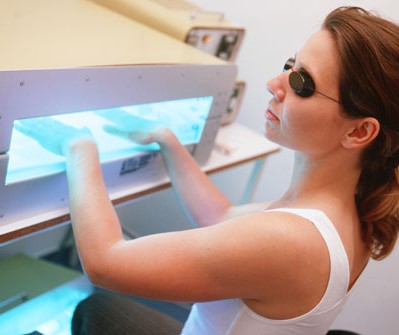Psoriasis Arthritis Treatment: Treating Psoriatic Arthritis
Nearly one in ten psoriasis sufferers will need psoriasis arthritis treatment due to development of joint inflammation. Considered part of the spondyloarthropathies, or arthritis types that cause spine inflammation, psoriatic arthritis patients not only experience plaques but also painful inflammation of lung lining, kidneys, tendons, eyes, and cartilage.
Treating psoriatic arthritis involves treatment methods different from those used to alleviate skin psoriasis, which can be problematic when combinations of strong medications are required.
Understand Why the Dead Sea is Beneficial for Psoriasis
Symptoms of Psoriatic Arthritis
Psoriatic arthritis does not generally affect someone until after age 40, with male and females equally affected by the disease.
As a systemic rheumatic disorder that presents symptoms similar to ulcerative colitis, reactive arthritis and Crohn's disease arthritis, researchers suspect that a combination of environmental, genetic and immune system components cause psoriasis arthritis. However, what exactly triggers its appearance in psoriasis patients is still unknown.
Signs that a psoriasis patient may have psoriatic arthritis and need psoriasis arthritis treatment include:
- Painful, hot and swelled joints
- Swelling of toes or fingers large enough to take on a "sausage-like" appearance that is medically referred to as "dactylitis"
- Joint stiffness, restricted mobility.
- Stiffness and pain in lower back or neck
- Fatigue
- Tendonitis
- Inflammation of various organs
- Iritis
- Changes in nail health with ridging and pitting
Iritis occurs when the iris is inflamed, and bright lights and pupil dilation exacerbate the pain. When iritis is severe, injections of corticosteroids into the affected eye are often necessary to prevent blindness.
Psoriatic Arthritis Causes Three Inflammatory Conditions:
- Pleuritis, or lung inflammation,
- Aortitis or heart inflammation
- Osteitis or bone inflammation.
Each type of inflammation requires different types of psoriasis arthritis treatment for relief.
Diagnosis of this type of arthritis can be problematic if someone experiences arthritis before developing psoriasis plaques. While no laboratory tests are available to determine unequivocally the existence of psoriatic arthritis, blood tests can assist physicians making a diagnosis.
For example, a blood test taking the "sedimentation rate" of a patient's blood may reveal abnormally high rates of inflammation in body organs. The "rheumatoid factor" blood test may be used to rule out the presence of rheumatoid arthritis.
Another test performed in a doctor's office is called an "arthrocentesis", which requires a doctor to extract fluid directly from inflamed joints. This fluid is then sent to a laboratory, where it is analyzed for gout crystals, infections and other abnormal conditions. Additionally, X-rays may help in diagnosing psoriatic arthritis by revealing atypical changes in the spine and/or previous bone injuries.
Psoriasis Arthritis Treatment

Treatment of psoriatic arthritis involves:
- The same kind of ultraviolet light therapy that relieves skin psoriasis symptoms is sometimes helpful to psoriatic arthritis patients as well.
- Stronger medications such as Trexall, Rheumatrex, Plaquenil and corticosteroids are used.
- TNF-alpha inhibitors (tumor necrosis factor) effectively block proteins directly stimulating inflammation symptoms.
- Immunosuppressant medications suppress the immune system's overreaction to psoriasis but the doctors prescribe them only when psoriasis induces severe cases of arthritis. Side effects include kidney and liver damage as well as anemia.
- Combination of exercise and NSAIDs (nonsteroidal anti-inflammatory drugs), specifically ibuprofen, naproxen, Celebrex and aspirin are used.
You ought to take NSAIDs with food to minimize tummy acids. Long-lasting and also normal usage of NSAIDs could destroy the tummy lining, create abscess and also advertise GI blood loss in individuals conscious anti-inflammatory components in NSAIDs.
Several of these psoriasis joint inflammation therapy strategies have the capability to create major adverse effects. If the threat included is worth taking the medicine, reviewing the pros and also disadvantages of these drugs with your medical professional will certainly assist you choose. Consulting a medical specialist on using organic therapies such as fish acupuncture, turmeric extract as well as oil, which have marginal negative effects, could be a much healthier option.
Psoriasis arthritis treatment and other psoriasis treatment
My experiences at the Dead Sea
Back to topNational Institute of Arthritis and Musculoskeletal and Skin Diseases




